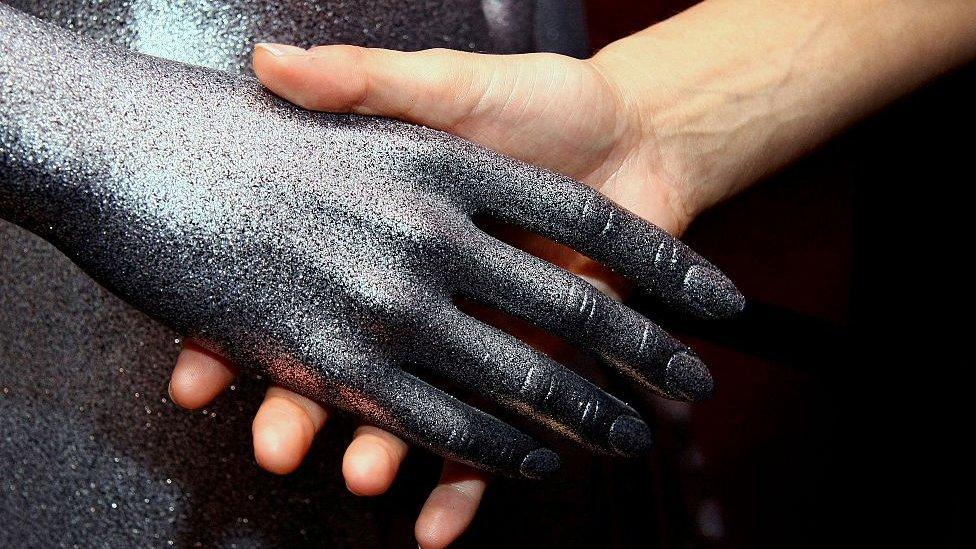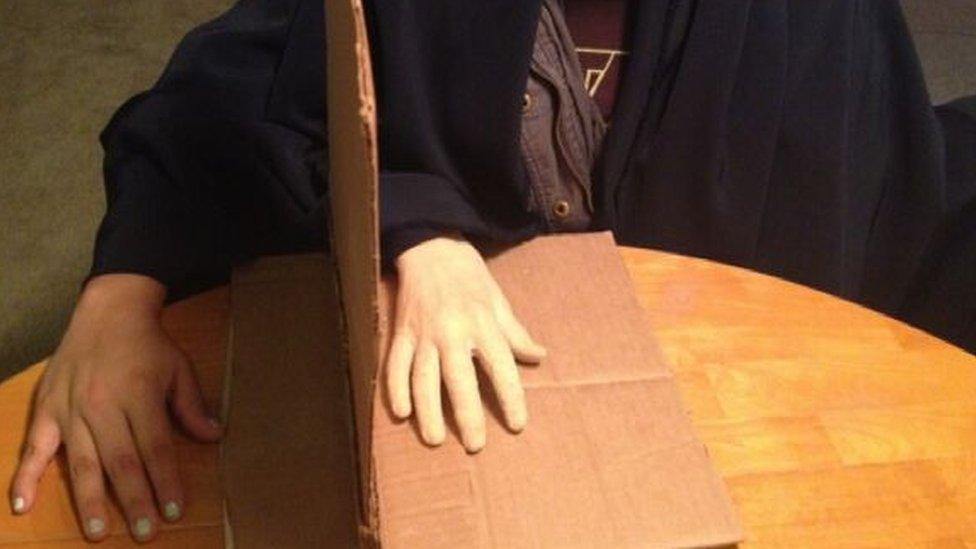OCD: Rubber hand party trick could help sufferers, new study says
- Published

A party trick involving a fake hand has been adapted by scientists looking at new treatments for obsessive compulsive disorder
A popular party trick could help people overcome obsessive compulsive disorder (OCD), according to a new study.
The rubber hand illusion - where people become convinced a fake hand placed in front of them is theirs - may lead to sufferers avoiding stressful therapy.
Researchers from Cambridge and the US have been carrying out experiments.
Neuroscientist Baland Jalal, from Cambridge University, said the treatment could "easily reach people in distress no matter where they are".
The researchers examined new techniques to treat OCD patients by adapting the rubber hand illusion.
Their work could pave the way for a cheaper and less stressful treatment, which immediately puts patients at ease by often making "them laugh", said lead author Dr Jalal, who carried out the study, published in Frontiers in Neuroscience, external, with US neuroscientist VS Ramachandran and Harvard University researchers.

The experiments were carried out on people with obsessive compulsive disorder at an intensive residential programme in the US
OCD is often treated with a combination of medication and exposure therapy, which includes scenarios where patients have to touch contaminated surfaces such as toilets, but are not allowed to wash their hands, resulting in some people refusing to take part.
In experiments, conducted in the US with 29 patients, fake faeces were smeared on a rubber hand while a damp paper towel was dabbed on their real hand at the same time - with both then stroked for minutes afterwards and reactions monitored.
Dr Jalal said: "If you can provide an indirect treatment that is reasonably realistic, where you contaminate a rubber hand instead of a real hand, this might provide a bridge that will allow more people to tolerate exposure therapy or even replace exposure therapy altogether.
"OCD can be an extremely debilitating condition... but the treatments are not always straightforward.
"Exposure therapy can be very stressful and so is not always effective or even feasible."
OCD is a mental health condition and affects as many as one in 50 people worldwide.
Sufferers have obsessive thoughts and compulsive behaviours, with the study saying almost half of patients have such severe contamination fears they cannot even touch a door handle without repeatedly washing their hands afterwards.